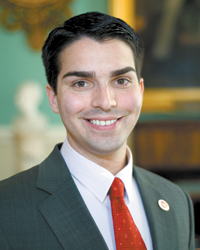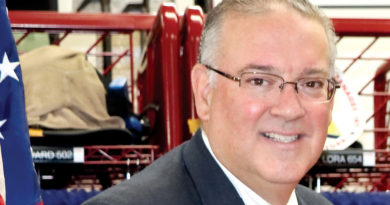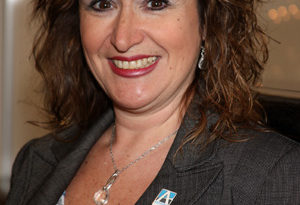Ride Share Cap Will Hurt Vulnerable New Yorkers
BY ERIC ULRICH
CITY COUNCILMAN
Earlier this month, the New York City Council passed a package of bills that would halt the issuance of new licenses for Uber and other ride share services for one year. This unprecedented move is a major setback for the more than 250,000 New Yorkers who rely on ride share services to get around.
Supporters of the bills have argued a cap would bring much-needed relief for medallion and TLC drivers who have been struggling to keep up with ride share mega-giants. And while I agree that the City should be doing more to support the TLC industry, there is a more practical solution that does not come at the expense of the many New Yorkers who are starving for reliable and affordable transportation alternatives.
The cap on ride share will have devastating consequences for outer borough and low-income communities. In the days leading up to the City Council vote, I received more than 100 emails and phones calls to my district office against the cap.
Many of my constituents in Rockaway and other geographically isolated areas do not have the luxury of vast public transportation options at their feet. This is especially true for elderly and disabled community residents, who do not even have a wheelchair accessible train station in their neighborhood.
These new restrictions on ride share services will similarly cripple low-income neighborhoods and communities of color. Services like Uber offer affordable transportation options in neighborhoods where medallions and yellow cabs are nowhere to be found. These areas are often also underserved by the MTA, which is now in a state of crisis.
Even those of us with easy access to buses and subways are not guaranteed reliable service. The MTA has the worst on-time performance of any major rapid transit system in the world. In January 2011, the New York City subway had an average on-time performance of 85.4 percent. Today, that number now stands at an embarrassing 58.1 percent.
Proponents of the Uber cap have argued that the City needs to do more to help TLC drivers, but it is unlikely that these restrictions with breathe new life into the dying medallion industry without the technological advancements needed to compete with Uber.
It is a little-known fact that in the weeks before the City Council vote, Uber, Lyft and Via joined forces and approached the City with an unusual, but commonsense solution to bail out struggling taxi drivers. In an attempt to halt the impending Council vote, the ride share services proposed a $100 million fund to support individual taxi medallion owners.
The companies said they would contribute $20 million a year for five years to a fund administrated by a non-profit for the relief of drivers suffering financially.
We cannot discount the financial relief a $100 million bailout would have offered struggling medallion drivers. Furthermore, the City also had the opportunity to help the yellow cab industry in the form of reduced fees and operating costs.
As an advocate for free-market enterprise and affordable transportation alternatives, I could not, in good faith, support these restrictions on ride share services. The vast majority of New Yorkers vehemently opposed these new restrictions. And while the full ramifications of City Council vote are still waiting to be seen, I am deeply concerned of the national implications.
Eric Ulrich represents the City Council’s 32nd District, which includes neighborhoods from Woodhaven to the Rockaways.




